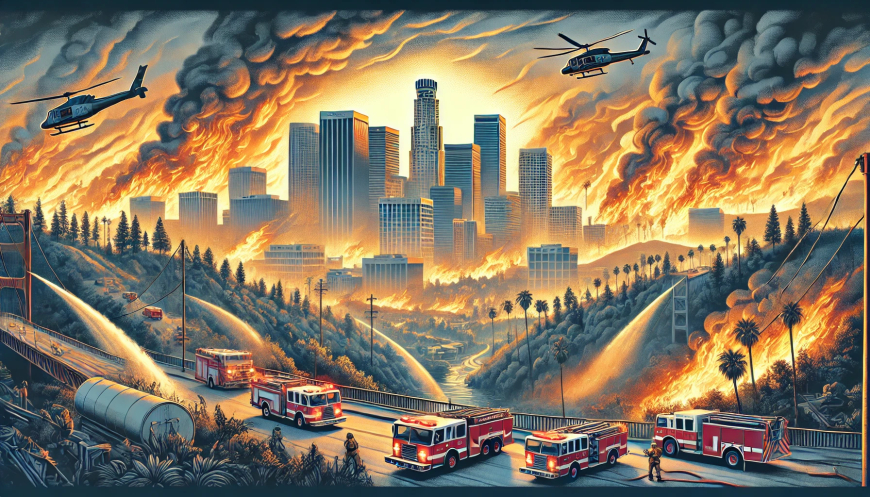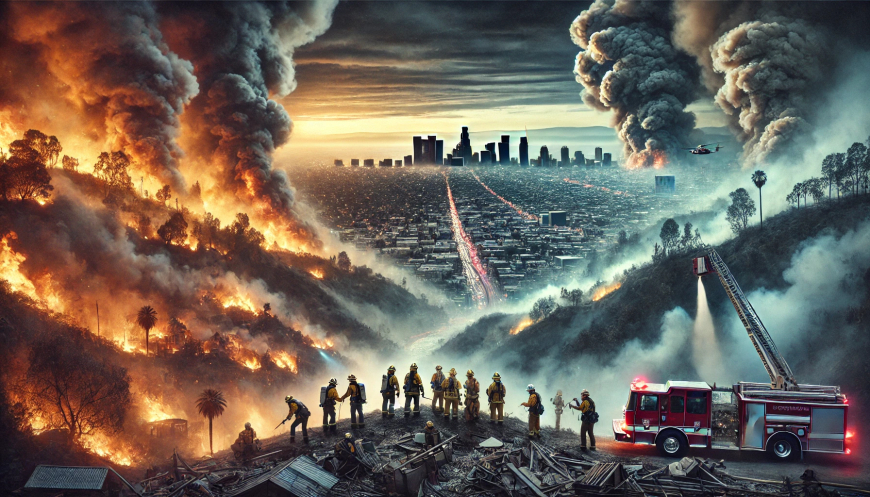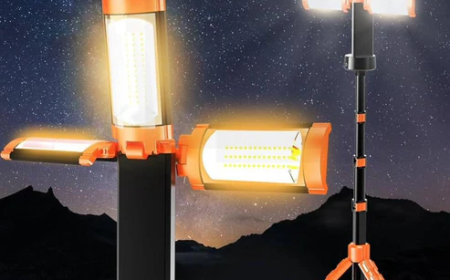Los Angeles Wildfires and State of Emergency: A Crisis in Focus
Southern California is facing a catastrophic natural disaster as raging wildfires continue to devastate the region. With a declared state of emergency, the impact of these fires has been far-reaching, affecting lives, property, and the environment on an unprecedented scale. This blog provides a detailed overview of the crisis, its causes, and the ongoing efforts to combat it.


The Wildfires: Scope and Scale
As of January 2025, the wildfires in Los Angeles have claimed at least 16 lives, destroyed over 10,000 structures, and forced the evacuation of approximately 150,000 residents. Estimated property damage has reached a staggering $150 billion. The fires, fueled by strong winds and dry conditions, have left vast areas of the state engulfed in smoke and flames.
Affected Areas
-
Los Angeles County
-
Ventura County
-
Orange County
The fires have spread rapidly, threatening densely populated urban areas and remote communities alike. Iconic landmarks and vital infrastructure have been destroyed, including schools, hospitals, and power lines.
Causes of the Wildfires
The wildfires have been exacerbated by several factors:
-
Climate Change: Prolonged drought and record-high temperatures have created ideal conditions for wildfires.
-
Santa Ana Winds: These strong, dry winds have intensified the spread of the flames, making containment efforts difficult.
-
Human Activity: Preliminary investigations suggest that some fires may have been sparked by human negligence or arson.
Impact on Residents and the Environment
Humanitarian Crisis
The fires have displaced thousands of families, leaving many in urgent need of shelter, food, and medical aid. Emergency response teams are overwhelmed as they work to evacuate residents and provide assistance.
Environmental Damage
-
Loss of Wildlife Habitat: Large swathes of natural habitats have been destroyed, putting numerous species at risk.
-
Air Quality: The smoke has caused hazardous air conditions across Southern California, leading to respiratory issues among residents.
-
Water Contamination: Authorities have issued advisories against using tap water in affected areas due to possible contamination.
Response and Relief Efforts
Government Action
California Governor Gavin Newsom has declared a state of emergency, mobilizing resources to combat the crisis. Firefighters from across the U.S. and Mexico have joined the effort, bringing additional manpower and equipment.
Federal Assistance
The Federal Emergency Management Agency (FEMA) is coordinating disaster relief efforts. Residents are being urged to apply for financial aid to recover losses and rebuild their lives.
Community Support
Local organizations and volunteers have stepped up to provide relief, including:
-
Temporary shelters
-
Food distribution
-
Psychological support for victims
Controversies and Challenges
The wildfire crisis has sparked debates over the adequacy of disaster preparedness and response:
-
Leadership Criticism: President-elect Donald Trump has criticized Governor Newsom’s handling of the crisis, reigniting political tensions.
-
Price Gouging: Reports of landlords raising rents for evacuees have drawn widespread condemnation.
-
Long-Term Solutions: Questions are being raised about California’s efforts to address climate change and prevent future wildfires.
Looking Ahead: Recovery and Prevention
Efforts are underway to rebuild and recover, but the road ahead is long. Key priorities include:
-
Reconstruction: Rebuilding homes, infrastructure, and businesses in affected areas.
-
Policy Changes: Strengthening fire prevention measures and addressing the root causes of climate change.
-
Community Resilience: Educating residents on wildfire safety and preparedness.
Conclusion
The Los Angeles wildfires are a stark reminder of the devastating impact of natural disasters. While the immediate focus remains on containment and relief, this crisis underscores the urgent need for long-term solutions to address climate change and enhance disaster preparedness. The resilience and solidarity of affected communities offer hope, but sustained effort and collaboration will be essential to overcoming this tragedy.
What's Your Reaction?

































